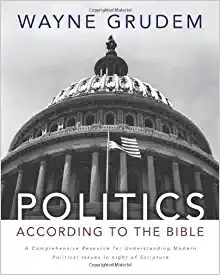God’s Justice is DIFFERENT Than Man’s Justice, especially Social Justice, which is Mankind’s attempt to establish their own righteousness.
The Christian notion of social justice is different from the contemporary, secular notion of social justice. The biblical exhortations to care for the poor are more individual than societal. In other words, each Christian is encouraged to do what he can to help the “least of these.” The basis for such biblical commands is found in the second of the greatest commandments—love your neighbor as yourself (Matthew 22:39). Today’s politicized notion of social justice replaces the individual with the government, which, through taxation and other means, redistributes wealth. This policy doesn’t encourage giving out of love, but resentment from those who see their hard-earned wealth being taken away.
Another difference is that the Christian worldview of social justice doesn’t assume the wealthy are the beneficiaries of ill-gotten gain. Wealth is not evil in a Christian worldview, but there is a responsibility and an expectation to be a good steward of one’s wealth (because all wealth comes from God). Today’s social justice operates under the assumption that the wealthy exploit the poor. A third difference is that, under the Christian concept of stewardship, the Christian can give to the charities he/she wants to support. For example, if a Christian has a heart for the unborn, he can support pro-life agencies with his time, talent and treasure. Under the contemporary form of social justice, it is those in power within the government who decide who receives the redistributed wealth. We have no control over what the government does with our tax money, and, more often than not, that money goes to charities we might not deem worthy.
Basically, there is a tension between a God-centered approach to social justice and a man-centered approach to social justice. The man-centered approach sees the government in the role of savior, bringing in a utopia through government policies. The God-centered approach sees Christ as Savior, bringing heaven to earth when He returns. At His return, Christ will restore all things and execute perfect justice. Until then, Christians express God’s love and justice by showing kindness and mercy to those less fortunate.
POLITICS > POLI = Many (and then) TICS = Blood Sucking Insects

It is not against the law to preach about political issues

It is a widespread myth that churches will lose their tax-exempt status if the pastor begins to speak about political issues. That is not true.
In 1954, the IRS code was amended to prohibit pastors or churches from explicitly saying they support or oppose any individual political candidate by name. (This amendment was introduced by then-Sen. Lyndon B. Johnson, so this is often called the Johnson Amendment.) However, in the 66 years since this amendment was adopted, no church has ever lost its tax-exempt status on the basis of anything a pastor said in the pulpit .
Clarification: In 1992, the IRS did revoke the tax-exempt determination letter they had sent to the Church at Pierce Creek in New York State, not because of anything the pastor had said in the pulpit, but because the church had taken out full-page ads opposing Bill Clinton in USA Today and The Washington Times. The IRS action was more symbolic than harmful to the church because church’s tax-exempt status was not affected, and no donations lost their tax-exempt status. This is because, unlike other nonprofit organizations, churches are automatically tax-exempt organizations whether or not they have an IRS determination letter affirming that status.
And the law in any case has never prohibited pastors or churches from taking positions on any moral or political issues that are part of an election campaign.
In addition, many legal experts believe the IRS would lose if this issue ever came into a court of law, because restricting what any pastor can say is a violation of freedom of speech and freedom of religion, both of which are part of the First Amendment to the Constitution. These experts believe the IRS regulation is unconstitutional, and I think they are correct.
Because of the particular status of tax law in the United States, such a law cannot be challenged in court until the IRS brings an action accusing someone of violating it. During the 2010s, a Christian legal advocacy group, the Alliance Defending Freedom (ADF), coordinated the efforts of hundreds of pastors who intentionally wrote sermons violating the Johnson Amendment by endorsing a candidate by name (such as Mitt Romney for president). The ADF then collected these sermons and sent them to the IRS, hoping that the IRS would charge some of these pastors with violating the Johnson Amendment so that they could finally have the amendment declared unconstitutional in a court of law.
But the IRS did nothing about these sermons. Why? My personal opinion (and it is only that) is that the legal experts in the IRS decided there was too great a possibility that the courts would find that the Johnson Amendment, in telling pastors what they could and could not say, was unconstitutional because it was violating both freedom of religion and freedom of speech, which are First Amendment rights and have higher authority than any law passed by Congress.
The Johnson amendment has never been repealed by Congress, but on May 4, 2017, President Trump signed an executive order directing the Department of the Treasury (which includes the IRS) not to target the tax-exempt status of the churches who favor or oppose specific political candidates.
Separation of church and state? A related objection is that if a pastor preaches about political issues, this will violate the separation of church and state.
In response, the phrase “separation of church and state” is found nowhere in our Constitution, though it is found in some later Supreme Court decisions. In any case, the phrase just means that the church and the civil government are two distinct organizations, with different people in authority over them. If understood in a positive way, it means that the government should not rule the church, nor should the church rule the government.
It does not mean that the church is prohibited from influencing the
state. After all, pastors are also citizens of the nation, and, like all other
citizens, they are free to speak their views and seek to persuade others. There
is no law against the church influencing the state.[1]
[1] Wayne Grudem is distinguished research professor of theology and Biblical studies at Phoenix Seminary in Arizona and the author of Christian Ethics and Politics According to the Bible. The opinions expressed here are his own and do not represent the viewpoint of Phoenix Seminary.
